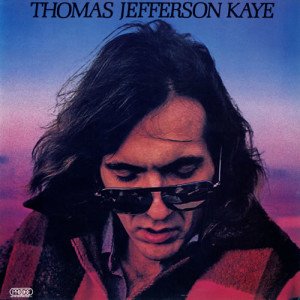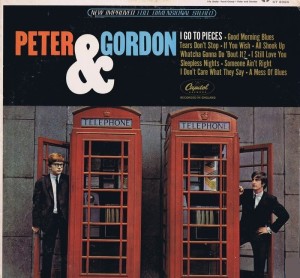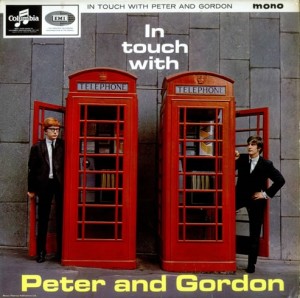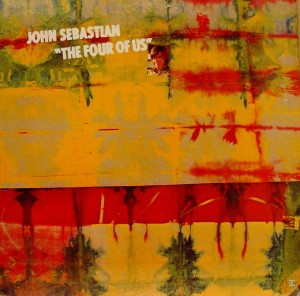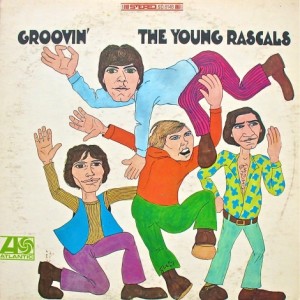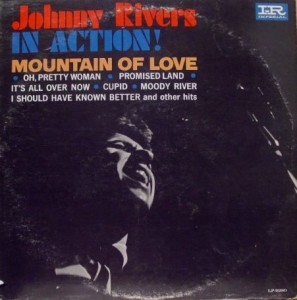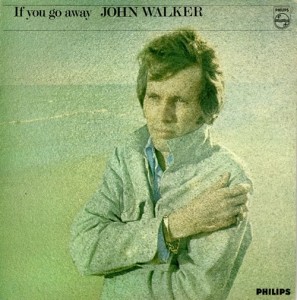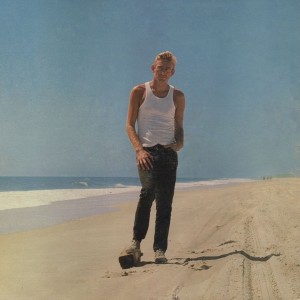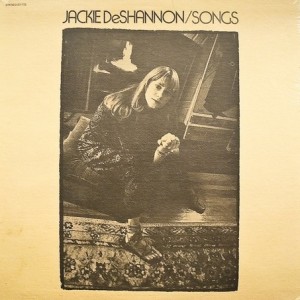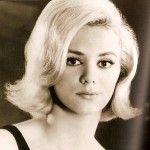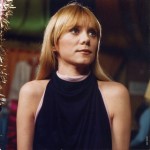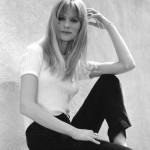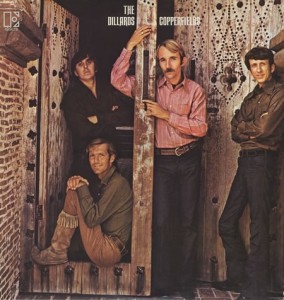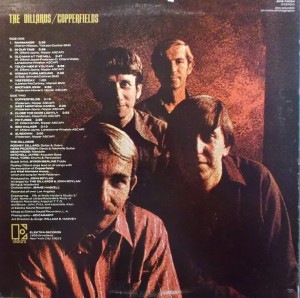Kaye was one of those music people you come across who was around music and the music business for practically his whole life (here some 40 years) without ever becoming a household name, or even a well known name today among anal music bloggers and yet, in his own way, he was quite influential.
Wikipedia in its introduction to him say, "Thomas Jefferson "Tommy" Kaye (born Thomas Jefferson Kontos, 1940? – 16 September 1994) ( or in 1942, in North Dakota)was an American record producer, singer-songwriter, sessionman, and musician. Described as a "legendary hipster", he worked as a songwriter and producer with a wide variety of musicians including The Shirelles, Loudon Wainwright III, and Gene Clark, and also recorded solo albums".
They then go into some detail on his career and it's an interesting read if for no other reason than the list of big names he has worked with.
Like a lot of music career people he started as an entertainer and never really shook that. Apart from his three solo albums (all later in his career) he was in the following groups, The Blaretones (1956), The Rock-Abouts (1957) (who changed their name to The Ideals in 1958, and recorded two singles for Decca Records and backed singer Joey Dee), White Cloud (in the early 70s and who recorded an album), and K.C. Southern Band (with Gene Clark)
He produced The Shirelles (for whom he co-wrote their 1966 single "Shades of Blue"), Judy Clay, Maxine Brown, Chuck Jackson, The Kingsmen, Jay and The Americans, Loudon Wainwright III, Link Wray, Mike Bloomfield, John Hammond Jr, Dr. John and most famously Gene Clark on three occasions.
He wrote about 185 songs including "One Man Band" for Three Dog Night which became a hit single (#17, 1971).
He worked continuously through the 70s and 80s.
He died in 1994. The usual rock n roll staples of pills and alcohol didn't help.
This album from 1973 was his first solo album and it is both a little strange and of its times.
Kaye was riding on a high as a producer and had worked himself into a comfortable place in California and so, I assume, called in some favours and put out this album.
It is of its times because 1973 California was awash with Laurel Canyon singer-songwriter ( see http://www.vanityfair.com/culture/2015/02/laurel-canyon-music-scene) and country rock and the album is lightly rooted in country rock with some of the gentler trippy and dreamier elements of the Laurel Country singer-songwriters thrown in. But Kaye was an outsider, and a fairly recent outsider, and had brought with him his own bag of tricks. There is some swamp, Louisiana blues funk, jazz and even Native American vibes thrown into the mix. There are references to native American Indian music on the sleeve and Kaye (aka Kontos I had read somewhere may have been of Greek ancestry) was born in North Dakota, American Indian territory. Native American rockers, Redbone, were doing well at the time also.
The end result, regardless of where he picked up his influences, is a country rock album which is outside the norm in both ambition and scope. Country goes south perhaps, like Manassas, Dr John and some dribs and drabs of Little Feat and The Byrds. Country funk, certainly.
Certainly if Cameron Crowe had been writing for something less mainstream (and banal) than Rolling Stone then "Almost Famous" would have had this on its soundtrack.
Most of the songs, well those that aren't piano driven, have tasty electric guitar licks supplied by Rick Derringer. Derringer had been in the garagy McCoys in the 60s before working with
Edgar and Johnny Winter, and with Steely Dan before going solo and into blues rock.
But, what holds it together is Kaye's voice. His voice is all cool and if the "legendary hipster" nickname is accurate I can see why. His voice is cool without sounding self conscious. He knows how to pitch it and does it perfectly. Like Tony Joe White without the southern drawl .. or, again, quite a bit like Redbone.
He even looks cool on the sleeve.
The songs "Hoe Bus", "Collection Box" and "Thanks for Nothing" all originally appeared on the self titled album put out by his band White Cloud in 1972. A couple of the songs are songs he co-wrote but initially appeared on Jay and the Americans "Capture the Moment" (1970) album which he co-produced.
Surprisingly, the album was produced by Gary Katz (who was a regular producer at the Dunhill label) and who is most often associated with Steely Dan rather than by Kaye himself. The album has a strong Steely Dan connection and includes Donald Fagen, Walter Becker, Jeff 'Skunk' Baxter, and David Palmer in the session work.
All songs by Kaye unless noted.
Tracks (best in italics)
Side One
- The Body Song – a slow song and a strange opener. Quite effective with an ominous beat and a hint of Native American rockers Redbone going on.
- Collection Box – (Thomas Jefferson Kaye, Joanne Vent) – a great song with a great voodoo hoodoo vibe going on.
- The Door Is Still Open – a good groove with horns a plenty.
- Learning How to Fly – (Thomas Jefferson Kaye, Kenny Vance, Marty Joe Kupersmith, Sandy Yaguda) – this one oozes attitude with horns and a down home strut. Why wasn't this a hit? The co-writers were in Jay and the Americans. The song was originally done by them on their "Capture the Moment" (1970) album though funk soul dude Freddie Scott also released it on his "I Shall Be Released" (1970) album.
- I'll Be Leaving Her Tomorrow – (Thomas Jefferson Kaye, B. Wagman) – a beautiful piano driven piece. Produced slickly this is a perfect ballad for early radio and just needs a hook to make it a hit. This one is copyrighted 1966 but was originally done by Jay and the Americans on their "Capture the Moment" (1970) album
Side Two
- Hole in the Shoe Blues – another song which is sooooo cool and quite cynical. Like a western Tony Joe White. Excellent.
- Snake in the Grass – a great bluesy stomper.
- Thanks for Nothing – copyrighted 1968 I can't find if Kaye had written this for someone else. A ballad which works a nice groove.
- Hoe Bus – southern grooves, a mid-tempo beat and a catchy chorus make for a great tune though I'm not sure what a "Hoe-Bus" is. Perhaps I shouldn't ask
And …
Excellent. Kaye should have been a lot better known … I'm keeping this.
Chart Action
Nothing nowhere.
Sounds
The Body Song
https://www.youtube.com/watch?v=tw4XNup2-UY
Collection Box
https://www.youtube.com/watch?v=EQCyYHEswWw
The Door Is Still Open
https://www.youtube.com/watch?v=896jFy-2FAI
Learning How To Fly
mp3 attached
I'll Be Leaving Her Tomorrow
mp3 attached
Hole in the Shoe Blues
https://www.youtube.com/watch?v=cnByc4jM6lk
Snake In The Grass
https://www.youtube.com/watch?v=_NT_8vzzSNk
Thanks For Nothing
https://www.youtube.com/watch?v=0sX7gRYsrFk
Hoe Bus
https://www.youtube.com/watch?v=uyhjfqcdOmg
Others
https://www.youtube.com/watch?v=Nhs_lGSGepM
Review
http://woodenbowlvalue1.blogspot.com.au/2013/08/thomas-jefferson-kaye-1973.html
http://overdoseoffingalcocoa.blogspot.com/2011/03/thomas-jefferson-kaye.html
Bio
https://en.wikipedia.org/wiki/Thomas_Jefferson_Kaye
http://www.blacklistedjournalist.com/column23a.html
Website
—
Trivia
- Personnel: Thomas Jefferson Kaye – Acoustic Guitar, Vocals / Rick Derringer – Electric & Acoustic Guitar / Jeff 'Skunk' Baxter – Electric Guitar on "Thanks for Nothing" / Bobby Black – Steel Guitar / Rick Slossen – Drums / Joe Frank Corrola – Bass, Backing Vocals / Randy Hobbs – Bass / Walter Becker – Bass on "I'll Be Leaving Her Tomorrow" and "Hole in the Shoe Blues" / Tom Salisbury – Piano / Victor Feldman – Percussion / Clydie King, Venetta Fields, Shirley Matthews, Dorothy Morrison, Diane Morrison, Micki St. Clair, Mark Springer, Chris Williamson – Background Vocals / Donald Fagen – Background Vocals on "The Door Is Still Open", "Learning How to Fly", and "I'll Be Leaving Her Tomorrow" / David Palmer – Background Vocals on "The Door Is Still Open", "Learning How to Fly", and "I'll Be Leaving Her Tomorrow" / Gary Katz – Background Vocals on "Collection Box".

